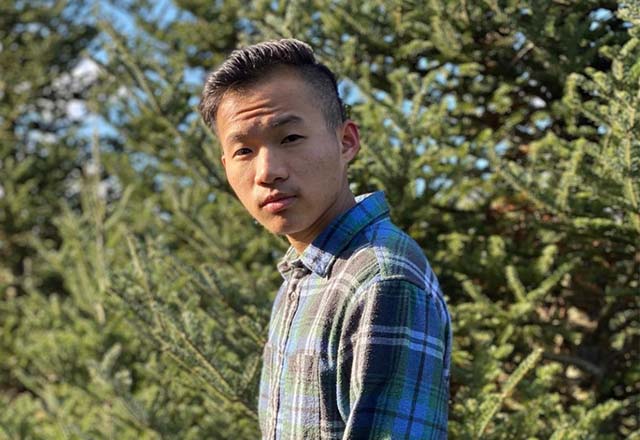Meet Maison

Maison experienced gender dysphoria from a young age — he always felt like a boy, despite being assigned female sex at birth. When 14 years old, Maison began researching his gender identity and what it means to be a transgender person.
“I felt trapped and never felt comfortable in my own skin,” Maison says. “I knew I was male and not female.”
Maison came out to his close friends when he was 15. They were incredibly supportive, and they encouraged him to come out to his family.
“I told my mom I don’t feel like a female, I identify as male and wanted to start transitioning,” Maison recalls. “She looked at me and said, ‘It’s about time,’ and she gave me the biggest hug. It meant the world to me.”
A month later, Maison came out to his father, Michael. “My dad told me he loved me and would always be in my corner,” Maison says. “He said he would do anything to support me. I was so scared, but it was time for me to be happy and time for me to live in my own truth.”
Before starting his junior year of high school, Maison got his hair cut — the first step in his physical transition.
At age 16, Maison began seeing the team at the Johns Hopkins Emerge Gender and Sexuality Clinic, which is part of the Center for Adolescent/Young Adult Health at Johns Hopkins and the Johns Hopkins Center for Transgender and Gender Expansive Health (CTH).
Opened in 2017, the Emerge clinic aims to improve the health and well-being of young people age 5 to 25 who identify as transgender, nonbinary or gender diverse. At the clinic, Maison and his mother, Judy, met with an interdisciplinary medical team that included Renata Sanders, M.D., M.P.H, Sc.M., adolescent medicine specialist and director of pediatric and adolescent services for CTH; nurse Kathy Tomaszewski (now retired — Diane Labis, B.S.N., R.N., is the current adolescent medicine nurse); social worker Tisha James, L.G.S.W, and psychologist Kathryn Van Eck, Ph.D. Maison began gender-affirming care that included counseling.
“When Maison first came to see us, he was vulnerable,” Sanders says. “He was like many of the other patients we see — scared of the future, feeling isolated, and emotionally struggling because of their bodies not aligning with their true self. When we started to engage in treatment with Maison and his parents, we saw a burden lifted. His entire stature changed. He stood up straight, he smiled. We saw him come alive. It was really nice to see.”
At 18, Maison started receiving testosterone shots to begin his medical transition. “This was not a decision that I made lightly,” Maison says. “My doctors told me that once I started, there was no going back, and the effects would be permanent. So we needed to make sure I was ready to medically transition. I knew I needed to take this next step to be who I really am.”
Maison was shown the proper technique to administer the testosterone shot, in order to regularly self-administer them at home. Within three months, he began seeing physical changes, including the development of an Adam’s apple, hair growth and lowering of his voice.
“I will never forget the day I got my first shot of testosterone,” Maison says. “I felt like I had the biggest weight lifted off me, and I knew I was going to love myself in a whole new way. I started becoming a man, and for the first time, I felt comfortable in my own skin.”
Maison continued to visit the Emerge clinic for gender-affirming care, and his doctors closely monitored his testosterone and estrogen levels — making adjustments as needed.
After being on “T” for nearly two years, under his care team’s guidance, Maison decided to have a chest masculinization mastectomy (top surgery) at CTH. In the fall of 2020, at age 20, he had a successful surgery. (Johns Hopkins performs gender affirming surgery only on patients age 18 and older.)
“The day I got top surgery was the best day of my life,” Maison says. “For the first time, I saw who I am inside when I looked in the mirror. I finally felt like I could breathe.”
Maison’s journey will never be over. He remains on testosterone and receives ongoing gender-affirming care and support at the Emerge clinic.
“Don’t give up on yourself,” he says. “I’m so lucky I had the support of the doctors, my family and my friends who helped me along the way to get to where I’m at today. The doctors at Johns Hopkins changed my life. Without them, I wouldn’t be Maison.”
Listen to Maison’s story.

